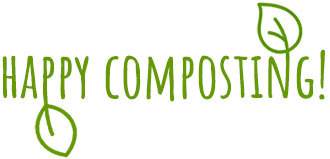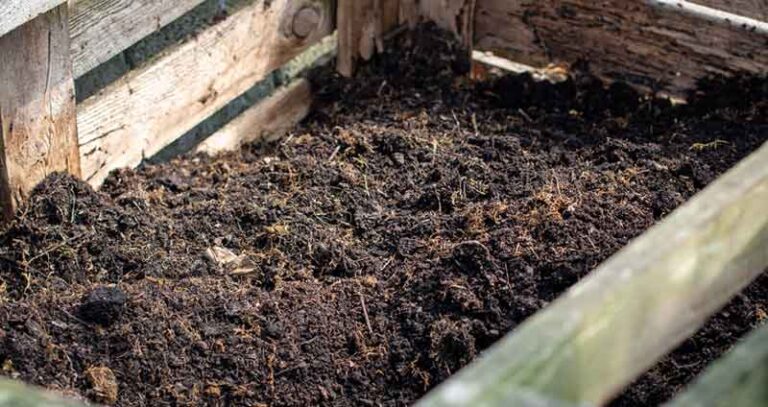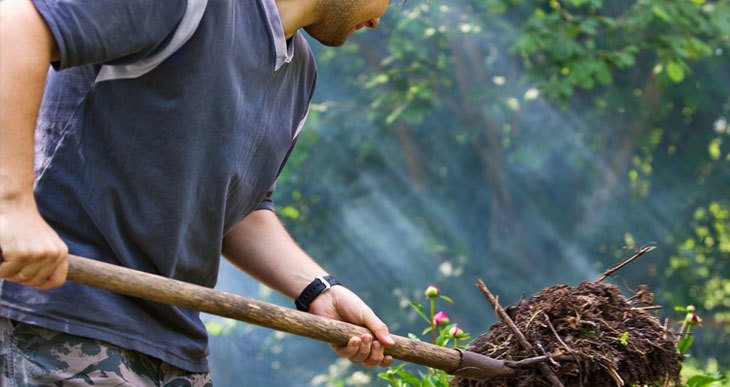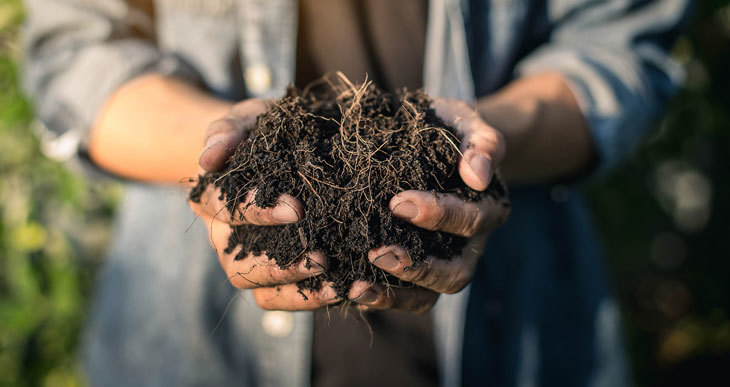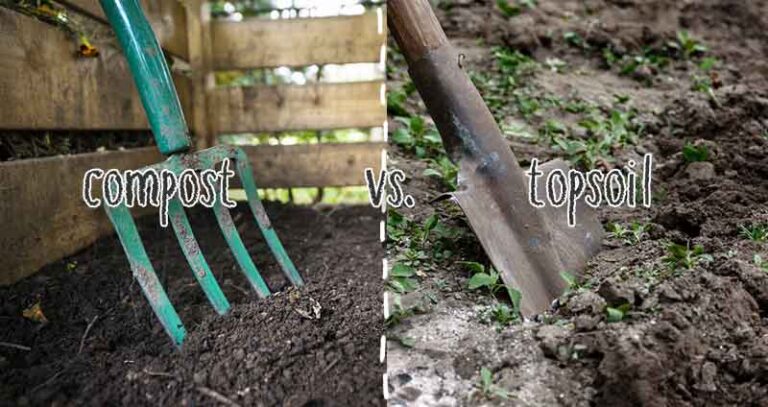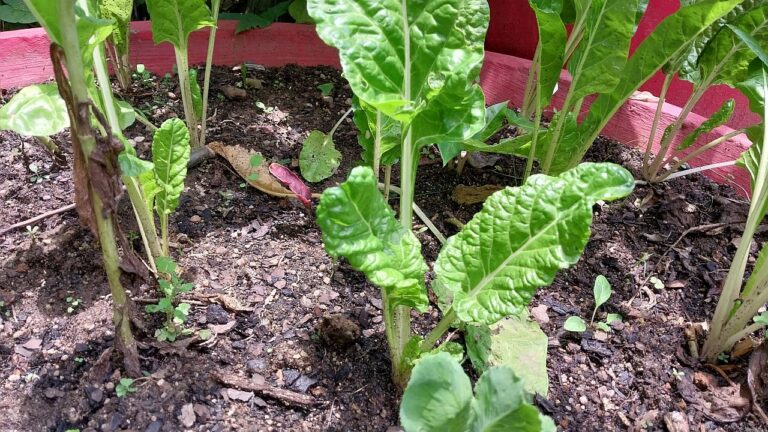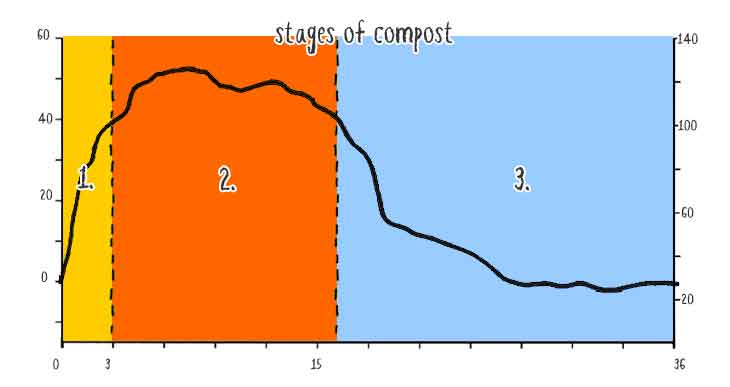Worm Castings vs Compost (Which is Better, Vermicompost or Regular Compost?)
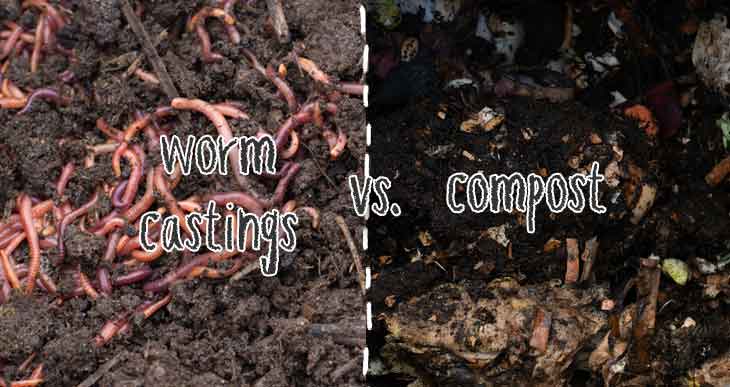
Both worm castings and compost take a certain amount of effort to produce. But is one better than the other?
Should you try making more worm compost or just stick to classic composting?
And is there really a significant difference between these two substances?
In this article, I’ll explain in detail how these two things compare to each other…
Worm castings vs. compost
Worm castings and compost are pretty different substances.
Compost is the result of decomposition, whereas “worm castings” are the by-product of both decomposition and digestion of organic materials by worms.
But before we get into the details of comparing these two things, let’s be clear about the vocabulary.
The terms used in vermicomposting can sometimes be confusing…
Is worm castings the same as worm compost?
Worm castings and worm compost (vermicompost) are not strictly the same thing. So what exactly do these two terms mean?
Worm castings are “worm manure.” They are the result of organic matter being digested by worms.
On the other hand, worm compost is a mixture of worm castings and partially decomposed organic matter.
In any worm farm, the organic fragments of kitchen scraps and bedding are digested several times. But the finished “worm castings” are always a mixture of both castings and organic particles. So anyone who tries to sell you “pure worm castings” has mixed things up!
The amount of pure worm castings in any worm compost varies considerably.
What percentage of vermicompost is castings?
The end product of vermicomposting is never 100% worm castings. However, most finished worm castings or worm compost typically contain between 20 and 50% organic matter.
Mostly this depends on the processes used to produce the worm castings and how long the worms have been left to digest organic waste.
You could potentially leave worms alone for several months to digest and re-digest the organic matter until everything has been “processed” by the worms several times.
Yes… I know. It sounds pretty gross!
After an extended period, you might get something close to pure worm castings. But most gardeners consider this “vermicast” overworked and probably has reduced nutrient value.
So for the purposes of this article, I’ll be using “worm castings” and “worm compost” or even “vermicompost” interchangeably! Because they are mostly considered the same thing!
What is the difference between compost and worm castings?
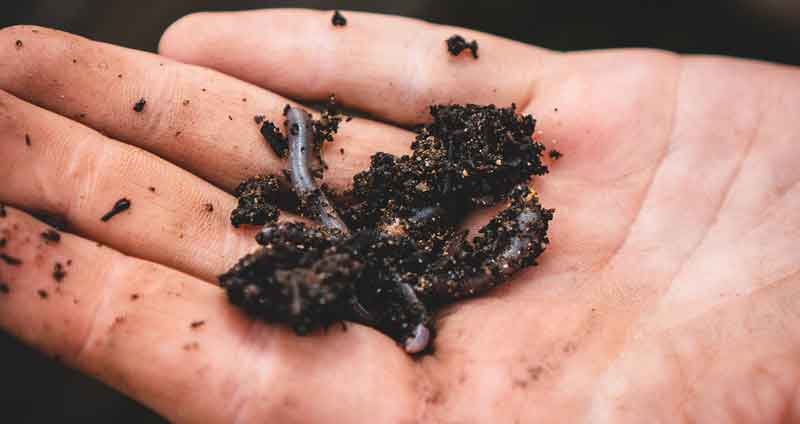
We all know that composting and vermicomposting produce valuable soil amendments that are highly beneficial for plants.
But what are the different characteristics of these two products?
Whether you’re making your own compost and worm castings at home (which I hope you are) or whether you purchase these soil conditioners from a nursery, how do you compare one thing with another?
Let’s examine each of the properties of compost vs. worm castings one at a time…
Nutrient availability to plants
Worm compost is said to have a broader range of nutrients and better nutrient availability than regular compost. This is because it contains some of the primary plant nutrients (nitrogen, phosphorus, and potassium or N-P-K) and some of the secondary nutrients and micronutrients.
The N-P-K ratio of worm castings is often higher than the levels found in standard compost. And these nutrients are in a water-soluble form that is immediately available to plants.
Compost, on the other hand, is more of a slow-release fertilizer. Therefore, not all of the nutrients are immediately available.
This difference doesn’t really make one substance better than the other. For example, slow-release organic fertilizers are excellent for long-term feeding. In contrast, fast-release fertilizer is perfect for giving plants a quick boost.
Worm castings do have a higher nitrogen content. Since most soils are deficient in nitrogen, this gives worm compost the advantage.
Porosity and aeration
Any organic matter will improve the circulation of oxygen in the soil. The texture and structure of compost or worm castings create air pockets that help plants “breathe.”
Mature compost has a high humus content. It is dark and crumbly with a spongy fibrous texture. But most composts have a rougher texture than worm castings. This coarse structure improves aeration in the soil. And over time, as the compost decomposes further, the humus remains in the ground and continues to improve the soil structure.
Worm castings are very dark, almost black in color, and have a very fine texture. They are extremely fine compared to regular compost, thanks to the grinding process of worms eating organic materials. It’s almost like pure humus… Worm castings are said to have excellent structure, porosity, and aeration. Possibly better than compost. Worm castings contain about 50% more humus than regular garden topsoil.
In both cases, the increased porosity offered by these amendments improves soils’ aeration and water penetration.
Water holding capacity
Vermicompost has a very high water holding capacity. The worm castings create small aggregates that combine together to improve the soil’s resistance to soil erosion and compaction. At the same time, increasing water retention.
Regular compost can hold up to 200 % of its dry weight in water. The water holding capacity of worm castings is said to be even higher, thanks to its high humus content.
Reduction of plant pathogens
Both compost and vermicompost can improve plant health by reducing the presence of plant diseases.
But it does this indirectly.
This happens thanks to the beneficial microbes contained in both compost and worm castings.
When you add worm castings or compost to the soil, it changes the microbial community surrounding the plant. And it does this in a helpful way. It shifts the microbial population to the kind that suppresses the development of specific pathogens.
What we understand about compost is that the nutrients provided to the soil encourage the growth of helpful organisms like fungi. These fungi compete with or even eliminate some harmful pathogens.
Another indirect way that compost and vermicompost reduce plant diseases is by improving the overall health of the plants. This makes them better equipped to fight disease pathogens.
Susceptibility to plant pests
Again both compost and worm castings can help with pest control.
We don’t really understand everything that happens in soil amended with compost. Still, studies have shown that it can help prevent pests.
One of the indirect ways it does this is by contributing to the plant’s overall health, making it better equipped to fight off pests. For example, a healthy plant can detect soil-borne pathogens. Then, it releases its own disease-fighting substances to deal with the threat!
Studies have also shown that vermicompost applications can significantly reduce pest populations and damage.
Plant growth
Some studies have shown that vermicompost contains plant growth regulators (PGRs), which could enhance plant development.
However, both compost and vermicompost include characteristics and nutrients that are beneficial to the growth of plants.
Acidity and Alkalinity
The end product is also slightly alkaline, with an average pH of 8. Compost starts acidic but becomes relatively neutral as it matures. This means worm compost might need adjusting for use with acid-loving plants.
Price
This is just something to consider if you are purchasing a soil amendment.
Vermicompost products are often more expensive than regular compost. Of course, you only need small quantities, but compost might be the better value overall.
You’re probably better off making your own!
Vermicomposting vs composting
Both vermicomposting and composting can be relatively low-maintenance. But they still need a minimum of effort to produce a good quality end product.
Worm castings take several months to produce, whereas composting results in finished compost in just 2 – 3 months if properly maintained.
Worm composting also has some limitations in size. Most home systems are suited to small amounts of kitchen waste. But composting can typically handle more significant amounts of waste such as garden trimmings, fallen leaves, and grass clippings.
On the other hand, worm composters take up less space. So for people with less available space, vermicomposting is a perfect solution for recycling waste.
Both processes are odor-free when they are correctly maintained. This mostly comes down to aeration.
Conclusion
Both worm castings and compost are valuable additions to garden soil. They both improve plant health and yield. In addition, they both include a robust microbial population beneficial to soil and plants.
But many studies do not show one product to be better than another.
For a start, the ingredients added and the process used can make a big difference to the quality of the end result.
The use of one or the other is also particular to your own soil characteristics.
For example, vermicompost contains more calcium. So soils deficient in calcium will benefit more.
Both systems have their place for recycling home waste 🙂
FAQ
Are worm castings the same as compost?
No. Worm castings are the end product after the organic matter has been ingested and excreted by worms. Compost comes from the decomposition of organic matter by microorganisms.
Is worm castings better than compost?
Some people think worm castings are better than compost. Still, studies have shown little difference in plant growth between one substance and another.
Can you mix worm castings with compost?
Yes, worm castings can be combined with compost. In most cases, combining worm castings with other growing mediums can be helpful.
Worm castings contain relatively high concentrations of inorganic salts. In some cases, this can inhibit plant development. The secret to using worm compost is to use it in small amounts. Just 5% content in soil produces a high level of benefits.
Adding worm compost to other growth mediums improves the end result, possibly because the salt content is diluted.
Are worm castings fertilizer or compost
Worm castings also contain varying amounts of decomposing organic materials. They also have a suitable quantity of nutrients and minerals.
So worm castings can be considered both a fertilizer and a compost.
Can I use worm castings instead of fertilizer?
Worm castings can be considered an organic fertilizer. The amount of nutrients varies from one end product to the other. But you only need a low application of vermicompost to get improved growth rates.
Ideally, you should test your soil to determine if it is deficient in any particular nutrients. For example, nutrient content in worm castings is relatively low compared to inorganic chemical fertilizers. However, you should keep in mind that plants will only take up the nutrients they actually need!
Any excess nutrients will leach away into the groundwater. This is not only inefficient but also harmful to the environment.
